6 Surprisingly Simple Ideas That Made Millions
A winning business idea doesn’t have to be complicated or technical to be successful.


Profit and prosper with the best of Kiplinger's advice on investing, taxes, retirement, personal finance and much more. Delivered daily. Enter your email in the box and click Sign Me Up.
You are now subscribed
Your newsletter sign-up was successful
Want to add more newsletters?

Delivered daily
Kiplinger Today
Profit and prosper with the best of Kiplinger's advice on investing, taxes, retirement, personal finance and much more delivered daily. Smart money moves start here.

Sent five days a week
Kiplinger A Step Ahead
Get practical help to make better financial decisions in your everyday life, from spending to savings on top deals.

Delivered daily
Kiplinger Closing Bell
Get today's biggest financial and investing headlines delivered to your inbox every day the U.S. stock market is open.

Sent twice a week
Kiplinger Adviser Intel
Financial pros across the country share best practices and fresh tactics to preserve and grow your wealth.

Delivered weekly
Kiplinger Tax Tips
Trim your federal and state tax bills with practical tax-planning and tax-cutting strategies.

Sent twice a week
Kiplinger Retirement Tips
Your twice-a-week guide to planning and enjoying a financially secure and richly rewarding retirement

Sent bimonthly.
Kiplinger Adviser Angle
Insights for advisers, wealth managers and other financial professionals.

Sent twice a week
Kiplinger Investing Weekly
Your twice-a-week roundup of promising stocks, funds, companies and industries you should consider, ones you should avoid, and why.

Sent weekly for six weeks
Kiplinger Invest for Retirement
Your step-by-step six-part series on how to invest for retirement, from devising a successful strategy to exactly which investments to choose.
A winning business idea doesn’t have to be complicated or technical to be successful. In fact, arduous business strategies and lengthy execution time can be a commercial inventor’s worst enemy. Seeing opportunities right under your nose can reap great benefits.
Consider Arthur Fry and Spencer Silver, creators of 3M’s ubiquitous Post-it Notes. Their idea for memo paper that you can stick to just about anything, which hit stores in 1980, helped contribute to the company’s $29.9 billion in net sales for 2012 (Fry and Silver have since retired.) Or take Spanx’s Sara Blakely, whose vision in 1998 for a new type of women’s shapewear revolutionized the undergarment industry and made her a billionaire. These are examples of how commonplace business ideas can strike a chord with consumers and generate huge sales.
The six no-frills concepts featured here all helped their inventors make millions. Take a look.
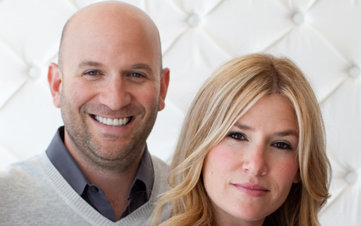
Drybar
- What it is: A women’s salon that specializes in blowout hairstyling for less
- Created by: Alli Webb and Michael Landau
- Launched: 2010
- Estimated annual retail sales (2014): $60 million
Webb, a Los Angeles hairstylist, quit working full-time in 2008 and was a stay-at-home mom when she came up with an idea to earn some extra cash: Why not focus exclusively on blowouts, a salon service she could take to her clients’ homes? Her services were soon so in demand that she approached her older brother, Michael, about starting a brick-and-mortar salon. They would offer a blowout for just $40 (versus up to $100 at more upscale establishments) and offer some of the fancy extras that clients might expect from pricier salons: a swanky bar layout with champagne and trendy music playing. Landau was working at Yahoo at the time and admits he wasn’t too keen on the idea. “I’m a man and I’m bald, so I didn’t get it,” he says. “But Alli felt very strongly about it and convinced me to give her [$250,000] to start the business.”
The brother and sister opened their first location in Brentwood, Cal., in 2010 and generated $1 million in sales that year. Today, there are 35 Drybar locations nationwide; the shops serve 100,000 clients a month on average, according to Landau. He attributes their rapid growth over the past year to a new line of hairstyling products and tools that are sold at Sephora and on the QVC channel, as well as at Drybar locations.
Even Landau is amazed: “It was something that was never meant to be a huge business,” he says.
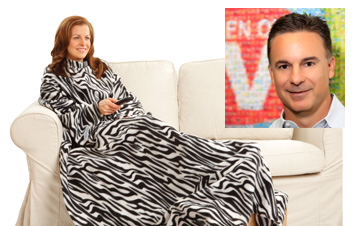
Snuggie
- What it is: A fleece blanket with sleeves
- Created by: Allstar Products Group
- Launched: 2009
- Annual retail sales: The company declines to disclose exact sales revenue, but says 30 million blankets have been sold to date.
You’ve probably seen the TV commercials for the Snuggie, which retails for $14.99. “It’s definitely one of those ideas that’s so simple that a lot of people might say to themselves, Why didn’t I think of that?” says Scott Boilen, founding member and president and CEO of Allstar Products Group, a Hawthorne, N.Y.-based consumer products company.
Allstar, which is privately-held, also produces other “as seen on TV” products, such as the Bacon Bowl and Magic Mesh, but none has the name recognition of the Snuggie. “It had actually been around in various forms for a few years with similar products available in the backs of catalogs, but nobody really knew about them,” Boilen says. His company decided to create its own version, marketing it with those infamous infomercials. The campaign was so over the top that people started posting parody videos on YouTube, which attracted millions more views, boosting viral marketing. Boilen says sales have remained steady after the first-year spike.
“I think what clicked for consumers is that the Snuggie appealed to everyone,” Boilen adds. “Doesn’t matter if you’re a kid, a senior citizen, a mom, a guy -- everyone can wear one. The market potential was limitless.”
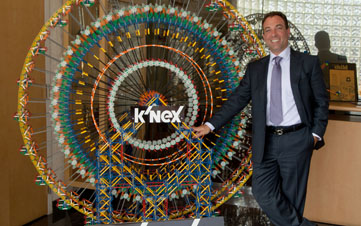
K'Nex
- What it is: Creative construction/building toys
- Created by: Joel Glickman
- Launched: 1992
- Annual retail sales (2013): $200 million
Glickman, who had worked in his family’s plastic business, was fiddling around with some drinking straws at a wedding reception in 1990 when the idea for a building toy hit him, and he spent two years developing the concept. Glickman’s construction set added an extra dimension of wheels, pulleys and gears to more traditional concepts pioneered by Lego and Lincoln Logs. Several companies, including Hasbro and Mattel, turned him down. But his idea clicked with Toys ‘R’ Us, which began carrying his line in 1993.
K’Nex quickly became a household name. Children could build miniature roller coasters and awesome mini vehicles. “No other construction-toy company at that time had a product like ours,” says Michael Araten, president and CEO of K’Nex and Glickman’s son-in-law.
Araten says that toys like K’Nex engender a feeling in kids “unlike anything they get from playing with a video game or prefinished product.” The company’s products are available in more than 35 countries worldwide.
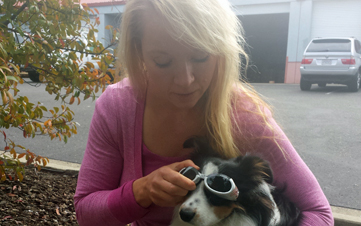
Doggles
- What it is: Protective goggles for dogs
- Created by: Roni Di Lullo
- Launched: 1997
- Estimated annual retail sales (2014): $4 million
Sunglasses for dogs? It all happened by chance one sunny afternoon when Di Lullo was in a park playing Frisbee with her border collie, Midnight. She noticed that her pooch was squinting and having trouble catching the toy because of the glare. That sent her to the drawing board to develop a prototype based on a pair of human goggles. Midnight took to the goggles and was able to frolic outside with no issue.
Other pet owners Di Lullo would meet while out with Midnight took an interest in the invention, which persuaded her to start selling the specs online. Initially, she devoted just a couple of hours a week to product development and marketing while working full-time as a software developer in Silicon Valley. It wasn’t until 2001 that she finally realized she was on to something. That year, Doggles received its first big order from PetSmart, the pet-supply store chain.
“Back then, I didn’t understand all of the various eye diseases dogs suffer from, so I didn’t have a grand plan,” she says. With some research, she discovered that there was no other company offering protective dog glasses. Di Lullo now has a patent for Doggles, which made $3 million in retail sales last year. Her company also distributes through Amazon, Petco and 3,500 mom-and-pop pet stores and outlets worldwide. Retail cost: $13.99-$20.99. Di Lullo also now offers a line of cat products, which includes toys and catnip.
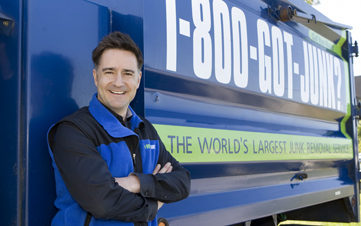
1-800-GOT-JUNK
- What it is: A trash removal service
- Created by: Brian Scudamore
- Launched: 1992
- Estimated annual retail sales (2014): $148 million
Scudamore was a struggling college student looking to make some extra cash when he bought his first truck for $700. The Vancouver, Canada, native saw a golden opportunity in hauling away the big stuff, such as furniture and appliances. Service calls picked up, so he decided to drop out of Concordia University in Montreal to run the company full-time. “I was learning more about business by actually working than being in school. My father thought I was out of my mind,” says Scudamore, 44.
By 1995, he had branched out to nearby Victoria, Canada. A move to the U.S. with a Seattle operation followed in 1997. Two years later, the company became a franchisor, making its first million in profits nearly eight years after 1-800-GOT-JUNK was founded, “There’s that old saying that it takes a while before you become an overnight success, and that’s how it happened for us. Once we made our first million, the business really began to take off,” he says. Today, there are 173 1-800-GOT-JUNK franchises, and the company posted revenues of $137 million last year.
Scudamore says that there’s really no “secret sauce” when it comes to refuse disposal: “We’re all consumers and we like to buy stuff. At some point, you need to get rid of that stuff.” His company now also offers services such as WOW 1 Day Painting, a same-day painting service, and You Move Me, a home moving service. Both are also franchisors.
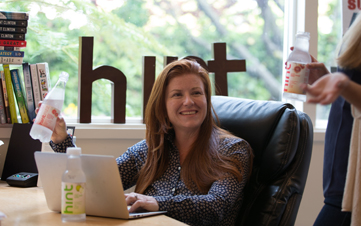
Hint
- What it is: Fruit flavored H2O
- Created by: Kara Goldin
- Launched: 2005
- Estimated annual retail sales (2014): $50 million
After leaving her job at AOL in 2001, Goldin, a wife and mother of three, developed an interest in healthy foods and beverages. A longtime diet-soda drinker, she found it difficult to give up artificially sweetened drinks. “I aspired to drink plain water but found it boring,” Goldin says. So she started adding fresh fruit to her water, giving it a flavor that she, her husband and her kids enjoyed.
Goldin researched to see if there were similar beverages on the market and found none. So she invested $50,000 of her savings to launch a drink company. Her big break: A local Whole Foods store in San Francisco agreed to distribute the product a year later. By 2007, Whole Foods started distributing Hint water in all its grocery stores nationwide.
Over the years, Goldin has also developed beverage-dispensing partnerships with some of Silicon Valley’s biggest tech companies, including Google, Twitter, Facebook and Square. Hint has become a popular choice among their health-conscious millennial employees, she says. The company is privately-held, and Goldin declined to disclose specific financial information pertaining to 2013 sales. However, in a recent Wall Street Journal article the company projects retail sales for 2014 at $50 million.
So, how did a sugar-free water beverage become so popular -- and profitable? Most big drink companies focus on products that are sweet, Goldin says, while Hint’s pitch has always been about health. “There are lots of consumers who have to drink water for health reasons -- they absolutely cannot have drinks loaded with sugar. We’re one of the very few options they have.” In May, Hint is set to launch an e-commerce platform, which will allow consumers to order and ship the beverage (in large quantities) directly to their homes.

Profit and prosper with the best of Kiplinger's advice on investing, taxes, retirement, personal finance and much more. Delivered daily. Enter your email in the box and click Sign Me Up.

Browne Taylor joined Kiplinger in 2011 and was a channel editor for Kiplinger.com covering living and family finance topics. She previously worked at the Washington Post as a Web producer in the Style section and prior to that covered the Jobs, Cars and Real Estate sections. She earned a BA in journalism from Howard University in Washington, D.C. She is Director of Member Services, at the National Association of Home Builders.
-
 4 Estate Planning Documents Every High-Net-Worth Family Needs
4 Estate Planning Documents Every High-Net-Worth Family NeedsThe key to successful estate planning for HNW families isn't just drafting these four documents, but ensuring they're current and immediately accessible.
-
 Love and Legacy: What Couples Rarely Talk About (But Should)
Love and Legacy: What Couples Rarely Talk About (But Should)Couples who talk openly about finances, including estate planning, are more likely to head into retirement joyfully. How can you get the conversation going?
-
 How to Get the Fair Value for Your Shares in This Situation
How to Get the Fair Value for Your Shares in This SituationWhen a sale of substantially all corporate assets is approved by majority vote, shareholders on the losing side of the vote should understand their rights.
-
 32 Ways to Make Money in 2025
32 Ways to Make Money in 2025business Check out these cool side hustles to earn bonus bucks this year.
-
 12 IRS Audit Red Flags for the Self-Employed
12 IRS Audit Red Flags for the Self-Employedtaxes If you are self-employed, minimize the odds of an IRS audit by avoiding these audit triggers.
-
 Business Cost Outlooks for 2022: Eight Key Sectors
Business Cost Outlooks for 2022: Eight Key SectorsEconomic Forecasts What’s in store for all sorts of business costs in 2022?
-
 PPP Loan Basics for Small Business Owners
PPP Loan Basics for Small Business OwnersCoronavirus and Your Money Although uncertainty and confusion have surrounded the Paycheck Protection Program since its launch, that shouldn't stop small business owners from participating in the loan program, which was just extended to May 31.
-
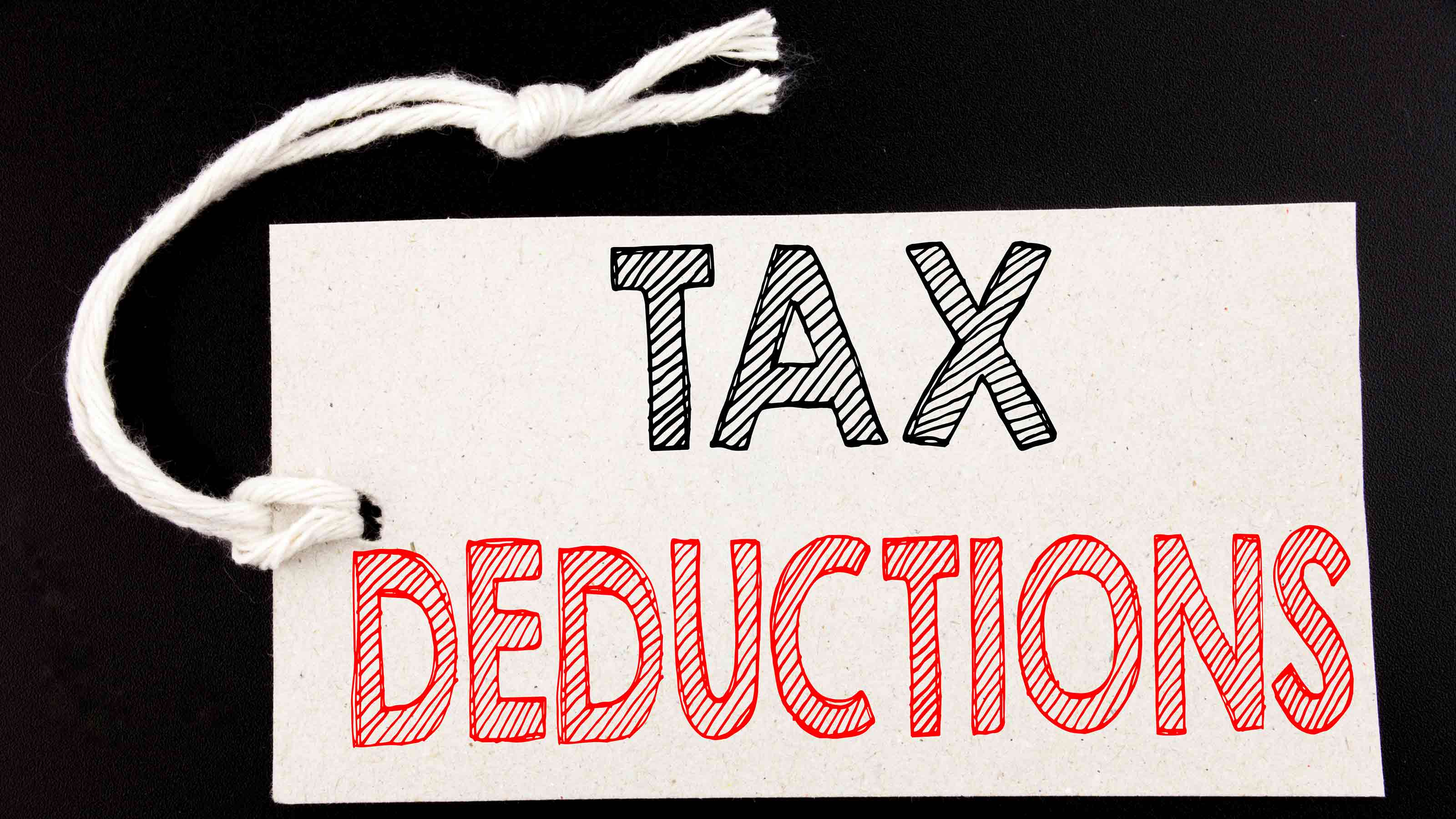 "Above-the-Line" Deductions for Your 2021 Tax Return
"Above-the-Line" Deductions for Your 2021 Tax ReturnTax Breaks If, like most people, you claim the standard deduction instead of itemized deductions on your return, there are still many other tax deductions available that could save you a lot of money.
-
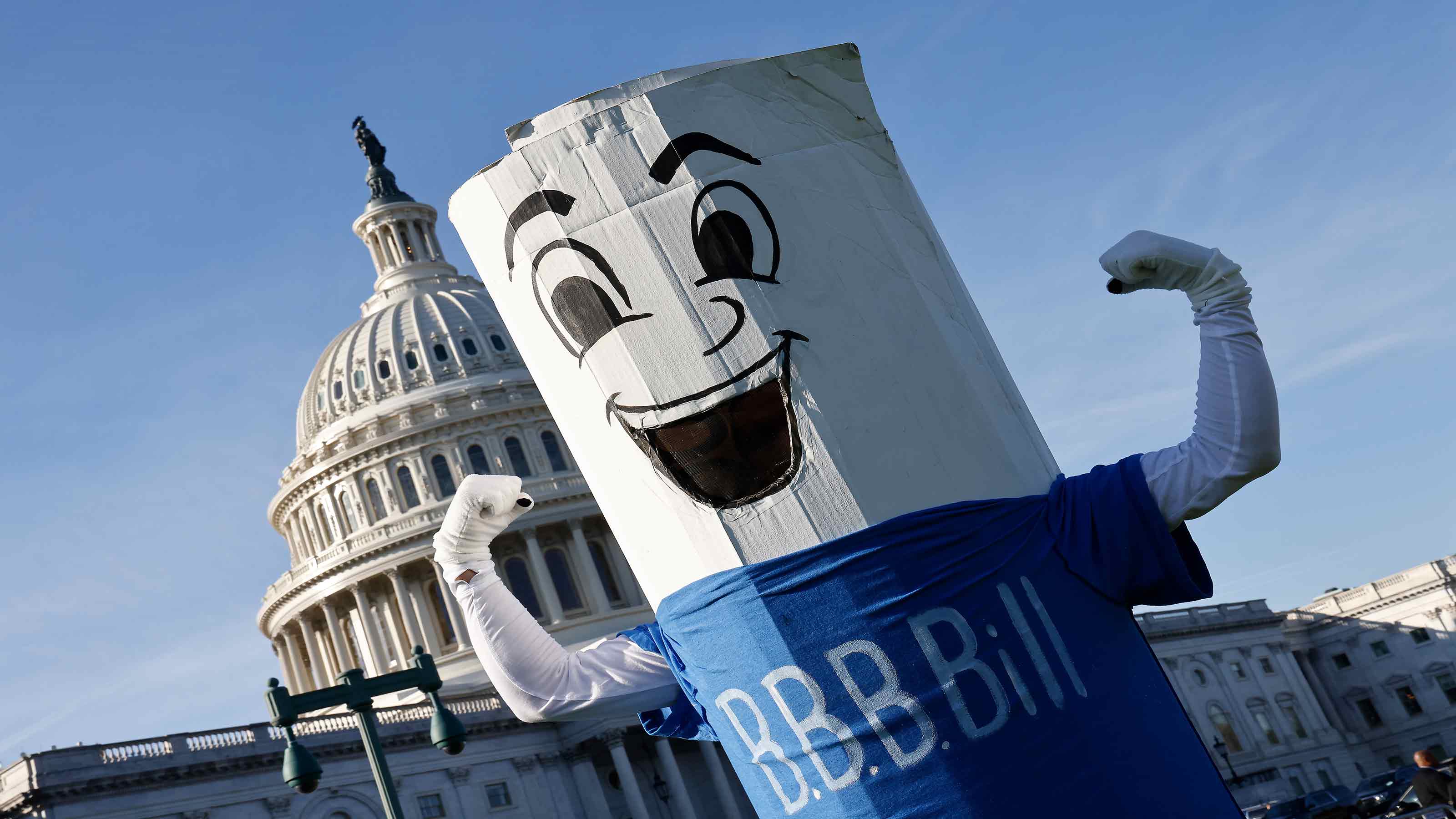 The Biden Tax Plan: How the Build Back Better Act Could Affect Your Tax Bill
The Biden Tax Plan: How the Build Back Better Act Could Affect Your Tax BillPolitics Depending on your income, the Build Back Better Act recently passed by the House could boost or cut your future tax bills.
-
 9 Tips for Better Time Management in Retirement
9 Tips for Better Time Management in Retirementretirement These important time management techniques will help destress your life as you get busier -- yes, busier -- in your golden years.
-
 7 Ways PPP Loans Just Got Better
7 Ways PPP Loans Just Got Bettersmall business loans The Paycheck Protection Program Flexibility Act makes a number of changes to the popular small-business loan program. See how your business might benefit from the improvements.
